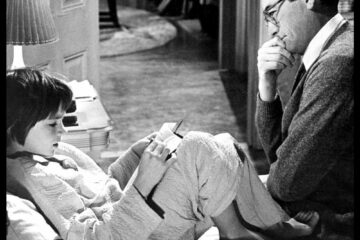I’m grateful to be writing this from Bali. I’m taking a brief and beautiful break from one of my aviation cases in Indonesia.
There is something Zen about the vibe here, which made me think it was a fitting time to post Chapter One of my Zen Lawyer column from the Tacoma Pierce County Bar News.
I previously posted Chapter Ten on meditation.
Thanks for reading.
Zen Stories
“It’s not personal, it’s strictly business.”
Zen is a famously elusive concept. The word Zen is the Japanese pronunciation of the Chinese character chan, which derives from dhyana,a Sanskrit word for Buddhist meditation.
Buddha believed we suffer because of unsatisfied desires and resistance to the natural law of impermanence. Zen is an antidote of sorts. Because Zen defies precise description, Zen teachers use stories and riddles to illustrate the meaning.
One of my favorite Zen stories is known by different titles, including “Luck” and “Maybe.” My affection for the story may be due to the fact I’ve always felt lucky.
Luck Maybe
A farmer’s horse ran away. Upon hearing the news of the famer’s loss, his neighbors came to visit.
“Such bad luck,” the neighbors said.
“Maybe,” the farmer said.
The next day, the horse returned, bringing with it two wild horses.
“Such good luck,” the neighbors said.
“Maybe,” the farmer said.
The next day, the farmer’s son tried to ride one of the wild horses, was thrown and broke his leg.
“Such bad luck,” the neighbors said.
“Maybe,” the farmer said.
The next day, military officials came to the village to draft young men into the army. They did not take the farmer’s son because his leg was broken.
“Such good luck,” the neighbors said.
“Maybe,” the farmer said.
And so on.
Courtroom Luck
Catholic Buddhist Jack Kerouac put it this way in his novel, On the Road, “Nobody knows what’s going to happen to anybody besides the forlorn rags of growing old.”
During a recent trial, I watched a lawyer lose a motion to exclude a witness and become angry. When the witness took the stand, the lawyer was still angry. As the sympathetic witness testified, the lawyer grew angrier. The lawyer was still fighting the motion he lost, he saw the witness as a bad break, he was lost in his anger. As a result, he missed an opportunity to perhaps gain something from the witness.
I watched this un-Zen example play out with a sort of awe because the angry lawyer managed to violate three precepts of Zen in one cross-examination: 1) it’s not personal, 2) things are not always what they seem, and 3) be present in the moment.
Nobody knows what’s going to happen to anybody.
Finding Zen
Zen can be found everywhere, in stories, in songs, in the courtroom, and in any moment you choose. As Robert Pirsig, the author of Zen and the Art of Motorcycle Maintenance, said, “The only Zen you find on mountaintops is the Zen you bring there.”
You can even find Zen inThe Godfather, which I quoted at the beginning of this chapter.
It’s not personal.
Zen Lawyer
To be a Zen lawyer, next time you take something personally, or you imagine you know what something means in this short and uncertain life, or you cannot let go of something, take a deep breath.
Then count to Zen.


